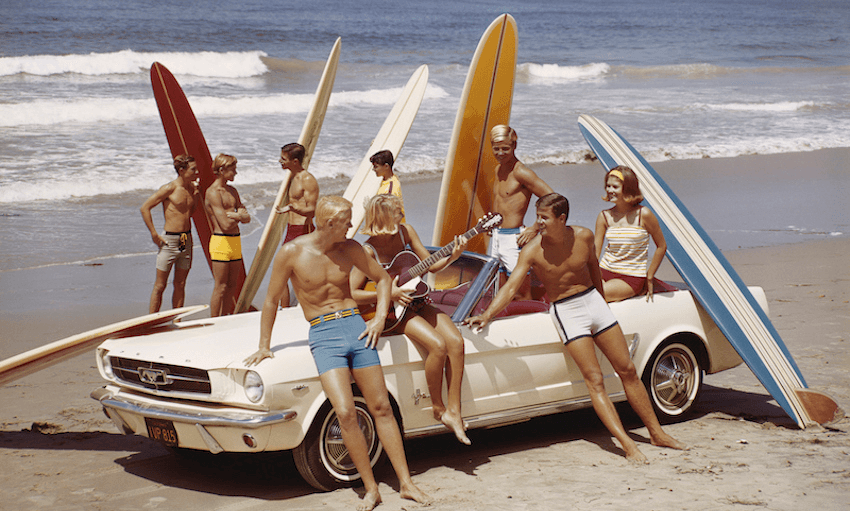By now, everybody should know about staying in their bubble and leaving the house only for essential services and exercise, provided social distancing rules are followed. Does this mean people can still take the boat out, or go surfing?
“Staying at home will save lives,” said Jacinda Ardern in a question and answer session she hosted on Facebook on Wednesday. It’s a clear message that’s been repeated time and again by law enforcement, government and organisation heads, and it’s one that to most people should make sense by now.
As well as accessing essential services like supermarkets and healthcare facilities, the government is still allowing people to leave their houses to exercise, but water safety organisations are urging the public not to take to the oceans.
The problem, says Surf Life Saving NZ chief executive Paul Dalton, is not in people breaking their bubbles when they go out to surf, but the risk they’re posing to the emergency callout teams if anything were to go wrong. He says right up until the lockdown members of Surf Life Saving crews were operating throughout New Zealand and rescuing people from unsafe positions.
“There was a surfer who had a spinal injury in Gisborne and needed rescuing just hours before [the lockdown], so it can happen to anybody at any time. There will always be people who think they know better and have good skills and capability but there’s only a matter of time before your luck runs out.”
Surf Life Saving guards have shut down over the four-week lockdown period, which means crews on call will take longer to respond to any emergencies. Dalton says the only way to make this four-week period as safe as possible is by people staying out of the water.
“Everyone’s in the same situation in terms of having limited capability and we’re all saying please stay at home. Save lives… Four weeks will soon be over and we’ll be able to get back into it.”
It’s not just surfers and swimmers who are being asked to try something else for the next four weeks. Auckland Harbourmaster Andrew Hayton is urging boaties to keep their feet on dry land for the time being. He says emergency services shouldn’t be using their resources on people who have chosen to disobey the rules at this time.
“If you’re out on the water and you get into trouble then you’ll be calling on the coastguard and emergency services to help you. By doing that, you take away valuable resources that could be needed elsewhere and you’re exposing the people who might be coming to rescue you to risk.”
The message couldn’t be clearer, he adds. Stay at home.
Those going out onto the water during the lockdown aren’t just putting themselves at risk. Coastguard NZ chief executive officer Callum Gillespie says the volunteers who operate the rescue boats won’t be able to stay in their own bubbles if they’re needed on a callout.
“We require a minimum of three crew to go out on any rescue boat so you’ve got three bubbles all of a sudden joined. We typically operate nine or 10 metre-long rescue boats so it’s very hard for us to socially distance our crew.”
Of the 3700 calls Coastguard NZ attended to last year, 400 of these were categorised “urgent events”, some of which involved serious medical issues. Gillespie wants to make sure that even the most experienced fishermen and boaties understand they’re not invincible, and while the coastguard is still operating throughout the lockdown, going out onto the water is risking more than just your own safety.
“Whether it’s a serious event or just a flat battery and you need the coastguard to come and tow you back, you can’t go out there without recognising that your actions can have an effect on other people.
“One in 10 events may be a medical emergency that puts stress on our health systems… in the weeks ahead as the number of hospitalised cases builds, the pressure is going to come on the health system and that’s going to have a real impact and stretch our medical resources at a time when we need them.”
He’s sympathetic to those who had made plans to catch some sun and maybe some kaimoana this weekend, and says there will be certain cases where boats are necessary, but these are few and far between.
“We had a very mature person phone us up and say ‘my wife is in hospital and we live on Rakino, that is where our house is, our boat is our means of transport to get home’, and to that we say ‘log a trip report, tell us what you’re doing, but of course take your family back home’.”
Police will be out on land and water to ensure everyone is sticking to the regulations of alert level four over the next four weeks, and can issue warnings and fines to anyone they find breaking these rules.
